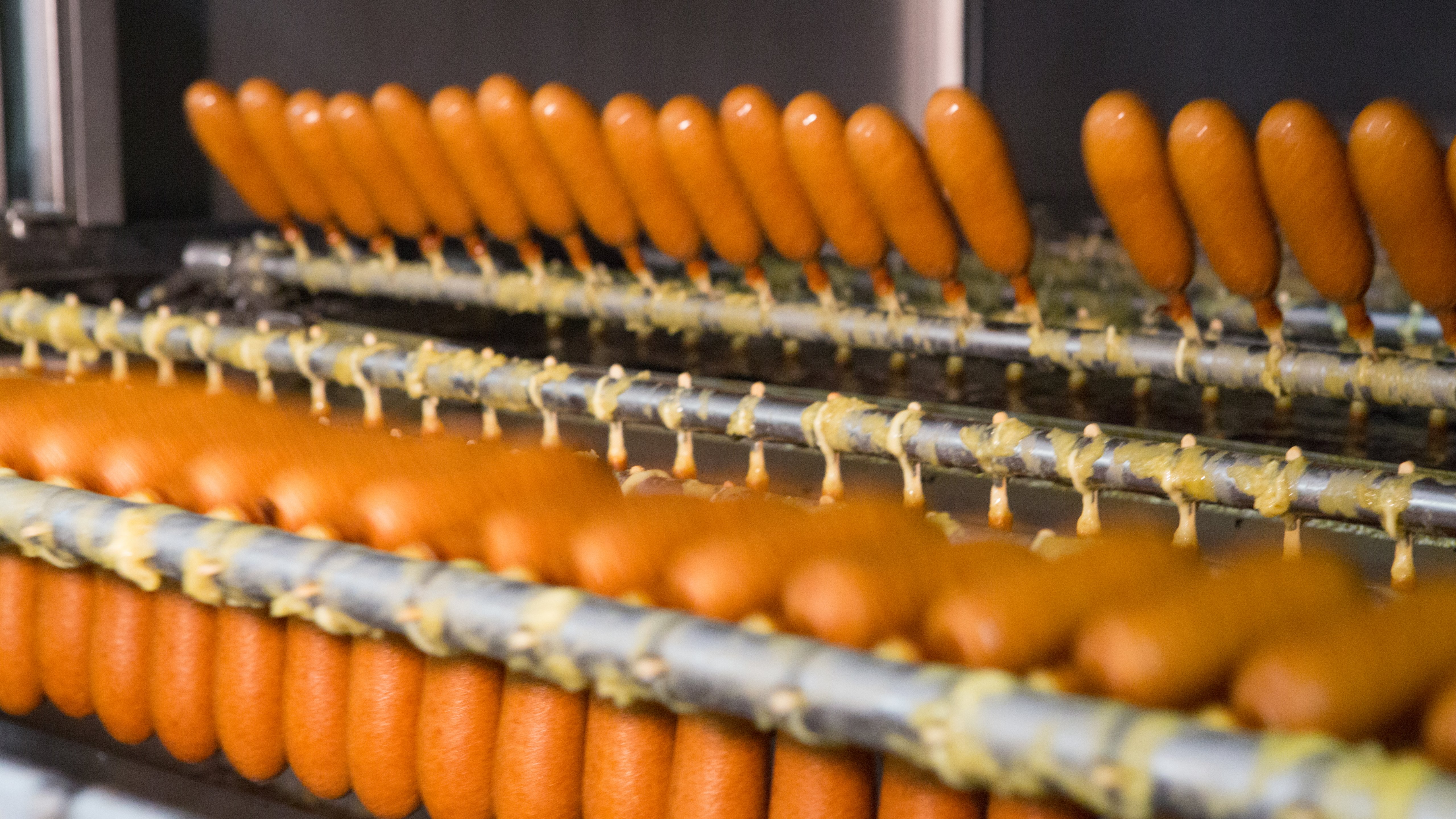Since the invention of the corn dog in 1930, Americans have fostered a genuine love for food on a stick. Hillshire Brands, a global leader in packaged meat and bakery production owned by Tyson Foods, is at the forefront of these innovative food products.
Convenience and great taste make corn dogs a mealtime regular for families.
Through the Jimmy Dean® brand, Hillshire has taken that concept to the breakfast table by creating a breakfast-on-a-stick option, combining pancake batter with breakfast sausage.
The Hillshire plant in Haltom City, Texas produces 58 varieties of meals on a stick from the classic State Fair® corn dog to turkey dogs with a honey sweet batter to maple breakfast sausage wrapped in apple cinnamon pancake batter.
The products are cooked, put through the “sticking” process, dipped in batter, fried and then frozen – in a continuous-process line.
The products are then packaged before they are sent to a connected mixing center for distribution.
The Haltom City plant rolls out a whopping 2.8 million corn dogs each day.
Any food supplier has to keep food safety top of mind, and especially with the 2015 implementation of new regulations under the Food Safety Modernization Act (FSMA).
The FSMA requires U.S. food suppliers to now focus on the prevention of contamination rather than the response to contamination.
Additionally, with raw-materials costs for food products on the rise, suppliers need to fi nd ways to ensure product quality while also maintaining plant efficiency and yield.
With improved visibility into production and access to real-time data, Hillshire increased plant productivity and enhanced its processes for reducing foodborne-illness risks at its Haltom City plant.
Faced with new FSMA requirements, Hillshire also realized a business need to improve production monitoring and efficiency.
The plant's old utility system that monitors refrigeration was outdated and obsolete. In addition to being inefficient and costly to maintain, operators were facing temperature deviations with no insight or access to real-time updates that posed a risk to food safety and product quality.
A single day of refrigeration-system downtime can cost the company $120,000 in raw-material losses, before labor costs are included.
Yet another challenge arose from the large number of product variations and changeovers on the plant floor each day.
